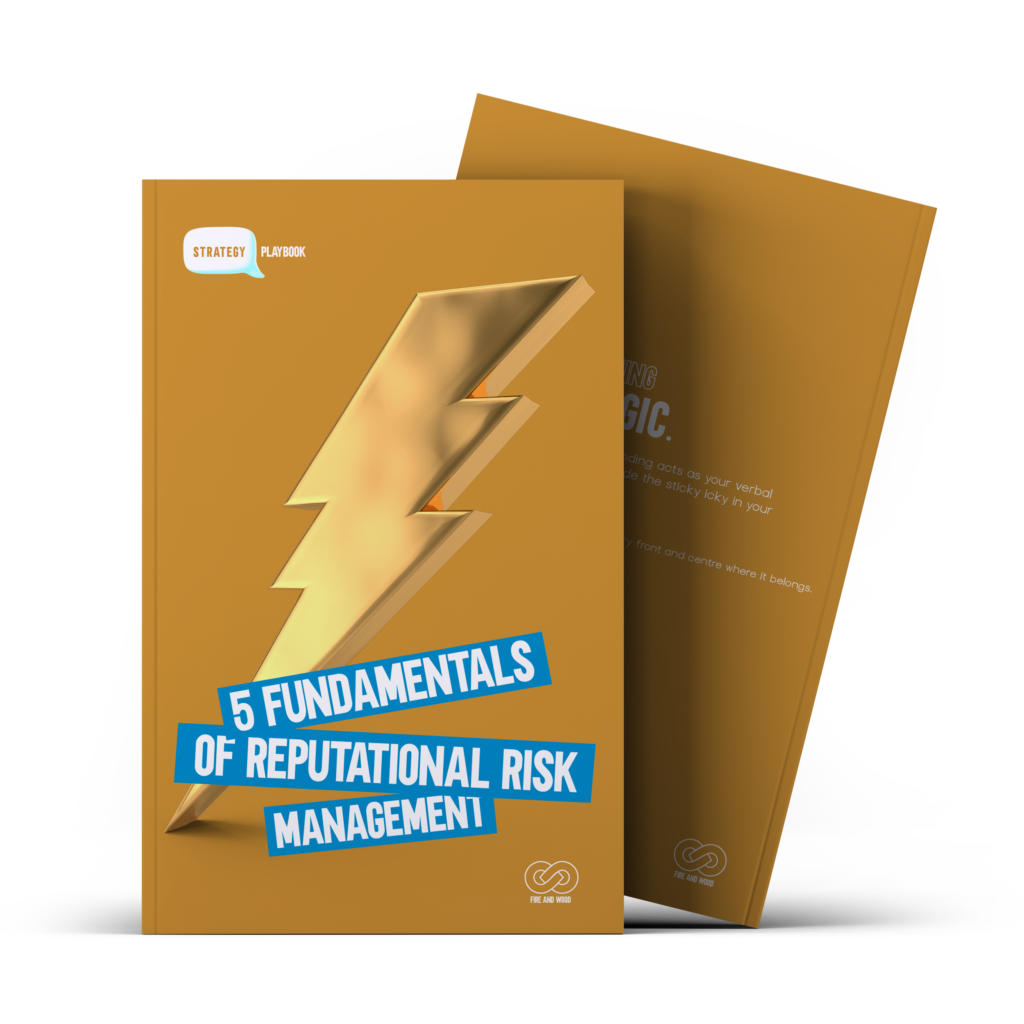Strategy
2 Reasons Why Reputational Risk Management Matters
Starting-up a start-up from the eyes of starter-uppers.

Todd O'Keefe
Chief Content Officer
Table of Contents
The power of reputation
The role of reputational risk management can never be stressed enough because a business is only as good as its reputation.
Modern consumers are well-versed in learning more about brands before buying its products or services.
Take the unfortunate example of needing to remove a mouse from your house.
Your natural inclination is to call an exterminator or ask friends or neighbours.
But, in the absence of an immediate referral, you venture online to see if other people trust them, their reliability and, ultimately: can the exterminator do the job and get rid of the mouse?
The exterminator’s reputation is critical to your decision-making process.
Even if they are more expensive than natural comparators, you might choose one company over another because of endorsements or testimonials from people that you believe and trust.
In a nutshell: this is the power of reputation.
2 reasons why reputation risk matters
There are several reasons for why reputation risk matters more than ever, but start with these two reasons.
1. Reputations are fragile
If the exterminator hires the wrong worker, ignores your concerns or mismanages his finances, his reputation can plummet along with his sales.
2. Reputations are online
In the past, referrals were typically shared over the backyard fence between neighbours.
Now everyone is connected.
Social media gives us a soapbox to share our feelings about companies, which makes those reputations vulnerable.
Online trolls
Speaking of social media, it provided anyone with a smartphone the potential to hurt a company’s reputation.
With 2.8 billion people today active on social media, one misstep from a company can be broadcast virally to influencers around the globe.
Online advice is great to validate your work and it’s easy to celebrate when a customer posts something positive: sales go up.
But, sometimes online feedback isn’t that great.
Sure, actual problems and constructive insights offer authentic chances to own the mistake and grow brand loyalty.
But a negative post can sink a brand.
According to a Zendesk report, online reviews influence 90 per cent of consumer buyer behaviours and decisions.
Not to mention, websites and online groups make it easier for someone with a grudge to share sensitive information online.
While trolls prefer to live lavishly under a bridge in folklore and decide who gets passage or not, online trolls are everywhere in real life.
And their anonymous approach to harming your brand image and credibility online is sometimes just for kicks.
BUILDING BRAND LOYALTY
These reasons alone are why your reputation risk needs to be managed proactively.
Take a thoughtful and focused response plan that is agreed to, shared and updated regularly to manage reputation risk.
As much risk as there is today in the world, the other side of that coin offers an opportunity to build on the value of a positive and solid reputation.
Don’t lose sight of the positive side of perception as a powerful driver in building loyalty with customers and other stakeholders.
In the end, having a comprehensive response plan empowers your company to keep your business image and brand resilient and protected.
Hopefully, you never need to call that exterminator.
But if you do, rely on the ones with a solid reputation earned on the foundation of public trust.
Looking for more ways to navigate reputational risk management?
Grab your playbook for insights into why reputation is important and how to predict, prepare and prevent risks to your brand.
Gain more confidence when handling brand crises and fixing risk plan vulnerabilities.
GET THE GOODS
Our starter-upper blog is a place you’ll find creative trade secrets, shop talk and the trials and errors of a creative incubator.
Our goal is to make things people will enjoy and want to share—from storytelling and copyhacking best practices to articles, videos and white papers.
Join the Starter-Upper newsletter today and get more articles like these ones.

PROTECT
YOUR BRAND
REPUTATION
Take a deep dive into your
free copy of the 5 Fundamentals of Reputational Risk Management and start building a bulletproof brand reputation that stands the test of time.
GET THE STARTER-UPPER INSIGHTS

